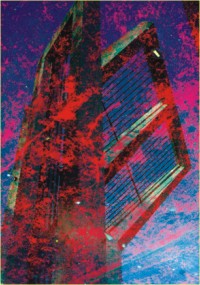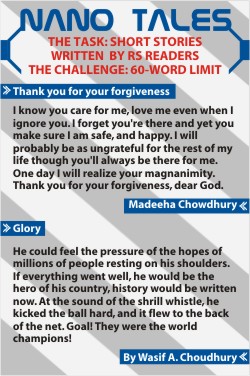
By Kazim Ibn Sadique

We have all heard the song, Amar Bhayier rokte rangano ekushey February. It is played quite often during this period of the year. But how much do we actually know about it? How much do we know about the people behind this iconic song of our Nation? So we set out to find out.
Abdul Gaffar Chowdhury
Abdul Gaffar Chowdhury is the lyricist of the song. He was born in 1934 and wrote this song as a poem when he went to visit a friend who had been shot and wounded during protests on the 21st. It was initially published as an anonymous poem in a Bangla paper under the title Ekusher Gaan [the song of the twenty first].
Abdul Gaffar Chowdhury currently lives in London and is a well known political columnist who writes for quite a few newspapers. He is said to be producing a movie based on the life of Sheikh Mujib titled, The Poet of Politics, rumoured to star Amitabh Bachchan in the lead.
Abdul Latif
A little while after Abdul Gaffar Chowdhury wrote the poem, Abdul Latif was given the task of putting a tune to it, which he completed in 1953. He is the first person to compose the music of this song. It was first sung by Latif Atikul Islam and later, the Dhaka College Students sang it while building a Shahid Minar on their campus. They were expelled for this action.
Abdul Latif was mainly a folk singer with the rare talent of forming songs instantly when the moment demanded it. Born in 1927 in Raipasha, Barishal, he went to Kolkata for his higher education and moved to Dhaka in 1948 and joined Radio Pakistan. During the turbulent 50's and 60's, he wrote both folk songs and gono songeet [songs of the masses]. He wrote about 1500 songs among which Ora amar mukher kotha kaira nitey chaye, Daam diye kinechhi Bangla, are particularly famous.
He breathed his last on February 26th, 2005.
Shohid Altaf Mahmud
The person most famed for composing the music of Amar bhayier rokte rangano. The current version that we hear everywhere is the one composed by him. His composition was used in the movie Jibon Theke Neya by Zahir Raihan.
Altaf Mahmud was a staunch activist during Language Movement. But he is well known not only for his contribution to Amar bhayier rokte rangano, but for his part in the Liberation War. A very good painter as well as composer, he wrote and composed many patriotic songs which were played by Swadhin Bangla Betar Kendra during the War. His house served as a hiding place for arms caches and he helped Freedom Fighters with food and money. On the mass guerilla arrest of 29-30th August 1971, Altaf Mahmud was arrested along with his four brothers-in-law and a friend, tortured heavily and thought to be killed in September.
Altaf Mahmud is among the Martyred Intellectuals.
Zahir Raihan
Arguably the most talented movie director to come out of Bangladesh, Zahir Raihan used Amar bhayier rokte rangano in one of the most iconic movies of Bangla film industry, Jibon Theke Neya [1970]. The movie featured a family under the tyrannical rule of a woman with the backdrop of a people's revolt. The movie is also famous for being the first movie where Amar Shonar Bangla was sung. The movie is excellent, the acting brilliant and the story is full of symbolism. It is a much recommended watch for every Bangali.
Zahir Raihan was also a novelist and has written 8 books. He was attracted to communist ideals and his writing reflects that. He also made a famous documentary, called Stop Genocide, during the Liberation War.
After Dhaka was freed, he searched for his brother, renowned writer and teacher Shahidullah Kaiser, who was abducted on the 14th of December. Zahir received a tip that he might find his brother at an address somewhere in Mirpur. On the 30th of December, he set out for Mirpur and has not been seen or heard from again. It is widely believed that he was baited and killed.
Both brothers are Martyred Intellectuals.
These are stories of just four people who were related to the song. If you want to know more about them, read their books, watch their movies and listen to their music. Honour the martyrs by not only by knowing their sacrifice, but by knowing their deeds as well.
Reference: wikipedia, Banglapedia, internet, newspapers, Ekatturer Dinguli, Daily Star

